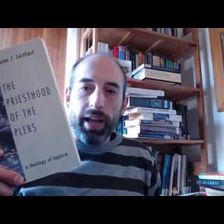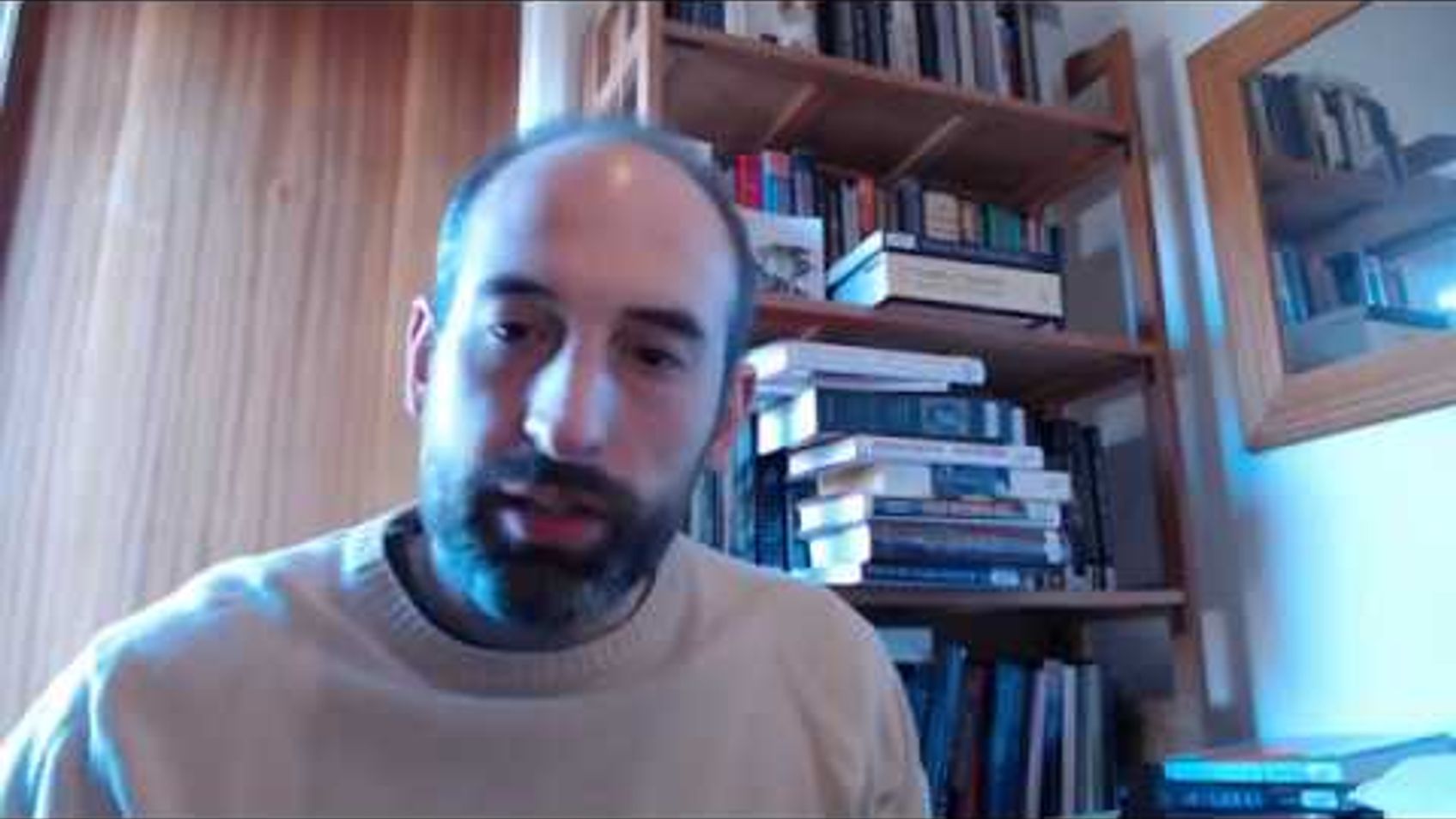Q&A#86 Jairus' Daughter and the Woman with the Issue of Blood
November 1, 2018

Alastair Roberts
Today's question: "What's going on with the story of the healing of Jairus' daughter and the woman who touches the hem of Jesus' garment? I know there are similarities between the two, but I'm not sure what to make of them."
If you have any questions, you can leave them on my Curious Cat account: https://curiouscat.me/zugzwanged.
If you have enjoyed these talks, please tell your friends and consider supporting me on Patreon: https://www.patreon.com/zugzwanged.
The audio of all of my videos is available on my Soundcloud account: https://soundcloud.com/alastairadversaria. You can also listen to the audio of these episodes on iTunes: https://itunes.apple.com/gb/podcast/alastairs-adversaria/id1416351035?mt=2.
More From Alastair Roberts

Q&A#87 The Church and the Natural Family
Alastair Roberts
November 2, 2018
Today's question:
"In the past two episodes of "Mere Fidelity" there was an underlying issue which was touched on, but not fully discussed. That is th

Q&A#88 Call No Man Father, Castor and Pollux, and Contraception
Alastair Roberts
November 3, 2018
Today's questions:
"1.) How can Paul call Timothy his "true child in the Faith" (1 Tim 1:2; cf. 1 Cor 4:17, 2 Tim 1:2) when Jesus forbids calling anyo

Q&A#89 Man, Woman, Deception and Authority in 1 Timothy 2
Alastair Roberts
November 4, 2018
Today's question: "How do we explain 1 Timothy 2:14? On the one hand it appears to have a novel idea that Adam was not deceived in the fall. While on

Q&A#85 The Cherubic Faces of Solomon's Water Chariots
Alastair Roberts
October 31, 2018
Today's question: "Why are the stands and basins of the Solomonic temple decorated with bulls, lions and cherubim? The bulls have sacrificial associat

Q&A#84 Being Born Again, Baptism, and the Subjective and Objective Work of the Spirit
Alastair Roberts
October 30, 2018
Today's questions:
1. "What is your understanding of what regeneration, being born again, and the new birth mean in Scripture? And how do common conte

Q&A#83 Peter Leithart and Me on Baptismal Efficacy: Do We Disagree?
Alastair Roberts
October 29, 2018
Today's question: "I just finished Leithart’s The Priesthood of the Plebs. It was one of the most stimulating books I have read in a long, long time.
More on OpenTheo

Why Do We Say Someone Was Saved on a Particular Date If It Was Part of an Eternal Plan?
#STRask
November 24, 2025
Questions about why we say someone was saved on a particular date if it was part of an eternal plan, the Roman Catholic view of the gospel vs. the Bib

Is It Possible There’s a Being That’s Greater Than God?
#STRask
February 5, 2026
Questions about whether it’s possible there’s a being that’s greater than God and that’s outside of God’s comprehension and omniscience, and how to ex

What Are the Top Three Apologist Pitfalls to Watch Out For?
#STRask
October 2, 2025
Question about the top three pitfalls to watch out for when you start using apologetics in conversations with others.
* What are the top three apol

Keri Ingraham: School Choice and Education Reform
Knight & Rose Show
January 24, 2026
Wintery Knight and guest host Bonnie welcome Dr. Keri Ingraham to discuss school choice and education reform. They discuss the public school monopoly'

How Would You Convince Someone That Evil Exists?
#STRask
November 17, 2025
Questions about how to convince someone that evil exists, whether Charlie Kirk’s murder was part of God’s plan, whether that would mean the murderer d

Can You Recommend Good Books with More In-Depth Information and Ideas?
#STRask
January 22, 2026
Questions about good books on Christian apologetics, philosophy, and theology with more in-depth information and ideas, and resources to help an intel

Why Does the Bible Teach You How to Be a Proper Slave Owner?
#STRask
November 13, 2025
Question about why it seems like the Bible teaches you how to be a proper slave owner rather than than saying, “Stop it. Give them freedom.”
* It s

Life and Ministry in Charlotte and in the SBC with Clint Pressley
Life and Books and Everything
December 15, 2025
In a rare cultural anomaly that may never be repeated in our lifetimes, the current SBC President and current PCA Moderator live in the same neighborh

The Golden Thread of the Western Tradition with Allen Guelzo
Life and Books and Everything
October 6, 2025
Dr. Guelzo is back once again for another record setting appearance on LBE. Although he just moved across the country, Allen still made time to talk t

Conservatism and Religious Freedom with John Wilsey
Life and Books and Everything
October 27, 2025
What is conservatism? And why does it go hand in hand with religious freedom? How should we think about the American experiment of ordered liberty? Ha

Is It a Sin to Feel Let Down by God?
#STRask
November 6, 2025
Questions about whether it’s a sin to feel let down by God and whether it would be easier to have a personal relationship with a rock than with a God

Did Jesus Prove He Wasn’t Sinless When He Overturned the Tables?
#STRask
December 29, 2025
Questions about whether Jesus proved he wasn’t sinless when he overturned the tables, whether Jesus’ response to the Pharisees in Mark 3:22–26 was a b

How Can I Improve My Informal Writing?
#STRask
October 6, 2025
Question about how you can improve your informal writing (e.g., blog posts) when you don’t have access to an editor.
* Do you have any thoughts or

How Do We Advocate for Christian Policy Without Making the Government Interfere in Every Area of Life?
#STRask
November 20, 2025
Questions about how to advocate for Christian policy without making the government interfere in every area of life, and the differences between the mo

How Do I Determine Which Topics at Work Are Worth Commenting On?
#STRask
January 5, 2026
Questions about how to determine which topics at work are worth commenting on, and a good way to respond when you’re in a group Bible study and hear e
